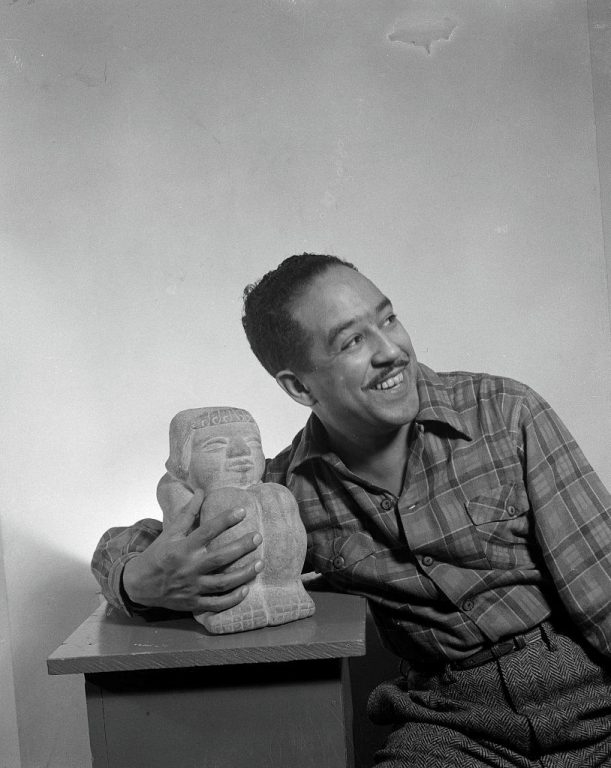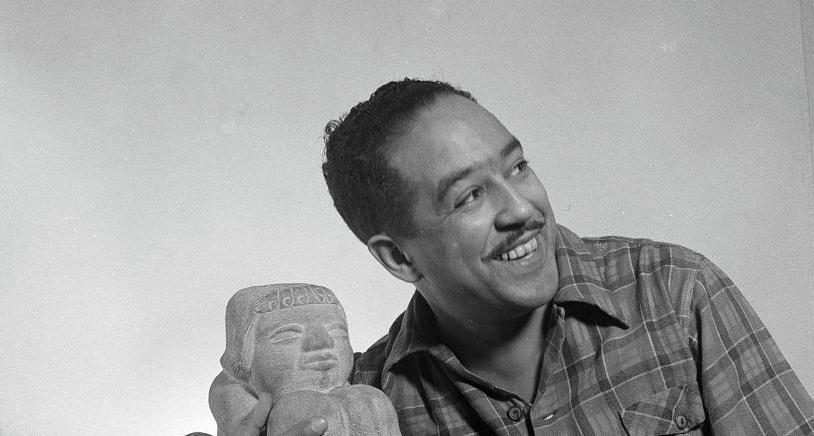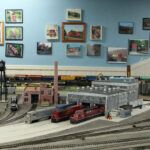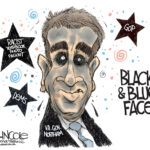Nov. 23, 1943:
Poet Langston Hughes took a Scranton audience on a journey through his life and the lives of Black people in America.
He began his lecture at the Century Club by describing how people would never see a Black person working as a store clerk or cashier or as a telephone operator in a city.
“The heart of the struggle is an economic one,” Hughes said. “The Negro in America really wants a chance to work, make a living and vote as others. He simply wants the basic rights of other peoples.”

Langston Hughes is photographed in1943,the same year he spoke and read some of his work at the Century Club of Scranton. Gordon Parks /Library of Congress
He went on to illustrate this point by reading two poems, “Yussuh” and “Brass Spittoons,” before speaking about his college days at Columbia University, where Hughes enrolled to study mining engineering. He encountered difficulties after leaving the university, he said, noting in the vernacular of the time that “when you begin to look for work and you are colored, then you realize what the economic color line really is.”
Hughes also spoke of his time in Paris, the “City of Lights,” and how that trip inspired his poetry. While there, he said, he found work as doorman and later as a cook at a nightclub where “the beat of jazz” got in his blood. He then read two of his “jazzy poems” – “Charleston” and “Young Girl’s Blues” – for the audience.
Those gathered also heard Hughes read three unpublished poems, “Madame to Your,” “Madame and the Army” and “Madame and the Census Man.” He also spoke about the Black men currently fighting in World War II and pointed out some recent positive war-related achievements, including how, for the first time, Black men were allowed to serve in the Army Air Corps and as sailors and gain employment in war industries. He also questioned the segregation of blood donated at Red Cross blood banks.
Before ending the lecture with a reading of the poem “Freedom of the Plow,” Hughes told those gathered, “My faith is that we will create in America a land where everyone will have a chance to earn a living, send his kids to school and share in democracy.”
The Century Club’s literature department, chaired by Claire Rice, arranged Hughes’ appearance. After the reading, a tea planned by Mrs. Charles B. Elston and Mrs. Bernard Heinz was served in the club’s lounge. Fall centerpieces and green and yellow tapers adorned the tables.
Listen to Hughes’ poem that mentions Scranton
Scranton was mentioned as one of the destinations in Hughes’ poem “One Way Ticket” that was published in 1949 in a book of poetry also titled “One Way Ticket.” The poem deals with the migration of Blacks leaving the South for cities in the Northeast, the Midwest and the West Coast in the early part of the 20th century.

Brian Fulton has been the librarian at The Times-Tribune for the past 15 years. On his blog, Historically Hip, he writes about the great concerts, plays/musicals and celebrity happenings that have taken place throughout NEPA. He is also the co-host of the local history podcast, Historically Hip. He competed and was crowned grand champion on an episode of NPR quiz show “Ask Me Another.” Contact: bfulton@timesshamrock.com; 570-348-9140; or @TTPagesPast




